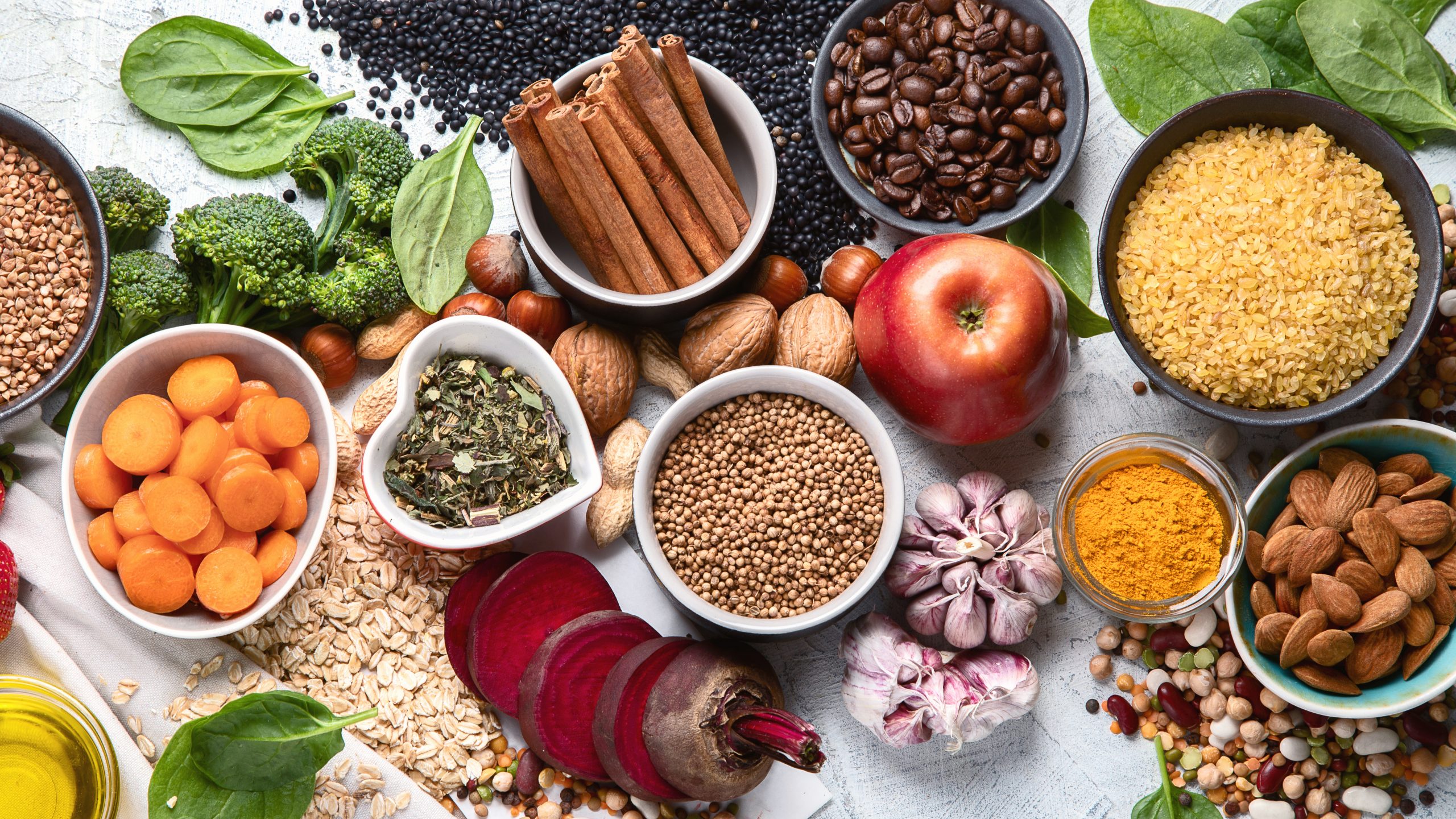COVID-19 is on everyone’s mind at this time, and looking after your immune system is more important than ever this year, especially with the change of the season into the cooler months nearly upon us.
- Nutrition: Eat plenty of vegetables, spices and herbs with every meal. They are jam-packed with essential vitamins and minerals, as well as phytochemicals and antioxidants, which support and strengthen the immune system, and are involved with turning certain genetic switches on to protect us from invaders and cancer. Go for a variety of different colours each day. Eating the “rainbow” truly does protect you from colds and flu. Include the following immune boosters on a regular basis – garlic, onions, ginger, and chilli; cruciferous vegetables such as broccoli, cauliflower, cabbage, Brussels sprouts; and vitamin A containing foods such as carrot, pumpkin, sweet potato, and green leafy vegetables.
- Sleep: Encourage yourself to bed before 9.30pm, and ensure you’re getting 7 – 8 hours of sleep. The body repairs itself while you are sleeping, and if you’re not getting enough, one of the first signs is inflammation and a dysfunctional immune response. Healthy sleep allows our immune systems to remember pathogens and fight them off at a later time. Lack of sleep not only affects your immune function, but also cognitive ability, mental health, blood sugar regulation and contributes to chronic disease.
- Vitamin D: A little bit of sunshine every day for a vitamin D boost. Low vitamin D levels are associated with immune dysfunction, depression and even cancer. Vitamin D assists the function of the immune system by reducing inflammation, as well as increasing the amount of antimicrobial proteins, which destroy invading germs and viruses, and help your immune system fight infections more effectively.
- Vitamin C: Consume fruits high in Vitamin C daily, such as citrus, kiwi fruit, capsicum, strawberries, paw paw and pineapple. Vitamin C decreases the length of time and severity of symptoms associated with colds and flu and supports our white cell immune function. Vitamin C also provides antioxidant activity to support healing at sites of inflammation.
- Medicinal mushrooms such as shiitake, oysters and reishi give your immune system a super charge. The polysaccharides support immune function by enhancing our white-cell activity, including natural killer cells, promoting innate and cell-mediated immune function, protecting us against invading microorganisms.
- Zinc is an important mineral for immune function, healing and fighting infection. It is essential for T cell and natural killer cell function as well as proper lymphocyte activity, and is involved producing antibodies to help you fight infection. Good sources of zinc include spinach, beef, blueberries, capsicum, egg yolks, ginger, lamb, oysters, asparagus, mushrooms, sesame seeds, pumpkin seeds, lentils, cashews and quinoa.
- Movement: Incorporate exercise into every day – even incidental exercise adds up. Take the stairs, walk to the bus, or go for a walk in your lunch break (incorporating a little Vitamin D). Gentle exercise on a daily basis keeps circulation healthy and therefore blood and nutrient supply to all areas of the body. Exercise contributes to the circulation of antibodies and increases the production of macrophages, which attack the bacteria that can trigger upper respiratory diseases. It also reduces stress hormones, which can create havoc with the immune system – see number 10.
- Hygiene: Simple actions, such as regular hand-washing will protect you from colds and flu. It doesn’t need to be antibacterial. Normal soap and water are perfectly fine. Hand washing is the single most effective way to prevent the spread of infections, and can reduce infection rates by up to 40%.
- Chicken Soup – Nana had it right when she made up a big pot of chicken soup to fight off a cold. The minerals from the chicken bones combined with onion, garlic, chilli and ginger plus added vegetables and herbs give your body the nutrients it needs to fight off any invaders.
- Reduce stress – Excessive stress affects every system in our body: challenging the nervous system, dampening the immune system, affecting digestion, dysregulating blood sugar levels, and the list goes on. On a physical level, the continued cortisol production lowers your immune system response, which is why you might end up with a cold when you are stressed out. Ongoing stress also depletes essential vitamins and minerals from the body including amino acids, Vitamin C, B vitamins and magnesium, which contributes to anxiety and nervous tension, insomnia, lowered immune function and fatigue.
Written by Cathy Vanzanden, Naturopath
At Inna Essence, we’ve got you covered for movement, mindfulness, the chance to reconnect and relieve stress. The Library is an online catalogue of Pilates, Yoga, Meditation and Barre classes you can do from home. Find out more by contacting our owners Anna and Andrea to help you get started.
We really want to extend our thanks to Cathy Vanzanden who has provided this article. She is a Naturopath and can help with herbs and supplements to support your immune system, prevent infections and improve general wellbeing. Cathy can be contacted on 0468 664 244 or email info@authenticwisdom.com.au


